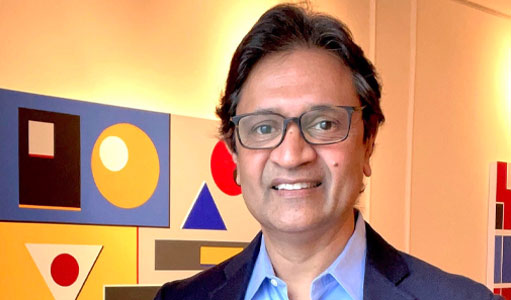Navigating the Core at SEAS
Understanding how the Core Curriculum differs for students at the School of Engineering and Applied Science can be significant for your career at Columbia.
Understanding how the Core Curriculum differs for students at the School of Engineering and Applied Science can be significant for your career at Columbia.
Professor Shree Nayar created the course, which offers an interdisciplinary approach to computer vision. The specialization is designed for learners to acquire the foundational mathematical and physical underpinnings of computer vision.
Columbia Engineering announces the launch of a new MOOC Specialization — First Principles of Computer Vision, offered on Coursera, a leading provider of massive open online courses (MOOCs). The five-course specialization is designed for learners to acquire the foundational mathematical and physical underpinnings of computer vision.
Today, computer vision has emerged as the primary form of artificial intelligence in some of the newest and most exciting technological innovations including driverless cars, medical imaging, optical character recognition, virtual reality, interactive games, and more. The expanding applications of computer vision cement it as an important aspect of the often-changing world of technology and artificial intelligence. As such, this program helps satisfy the rising demand for workers that understand computer vision and its real-world applications, opening learners to the opportunity for jobs, such as computer vision hardware engineers or computer vision researchers.

Shree Nayar, T.C. Chang Professor of Computer Science and instructor for this course, describes the implications of computer vision, “The goal of computer vision is to build machines that can see. We’ve already seen very successful applications of vision such as face recognition and driverless cars. There is much more to come. In the next decade, we can expect computer vision to have a profound impact on the way we live our lives.”
First Principles of Computer Vision Specialization consists of five courses covering topics such as Camera and Imaging, Features and Boundaries, 3D Reconstruction Single Viewpoint, 3D Recognition Multiple Viewpoints, and Perception. This specialization offers an interdisciplinary approach to computer vision, giving learners a full-spectrum view of its foundations. As Nayar describes it, “While we approach vision as an engineering discipline in this program, when appropriate, we make connections with other fields such as neuroscience, psychology, art history, and even biology.”
Find out more about First Principles of Computer Vision via the following link: https://www.coursera.org/specializations/firstprinciplesofcomputervision.
Find open faculty positions here.
President Bollinger announced that Columbia University along with many other academic institutions (sixteen, including all Ivy League universities) filed an amicus brief in the U.S. District Court for the Eastern District of New York challenging the Executive Order regarding immigrants from seven designated countries and refugees. Among other things, the brief asserts that “safety and security concerns can be addressed in a manner that is consistent with the values America has always stood for, including the free flow of ideas and people across borders and the welcoming of immigrants to our universities.”
This recent action provides a moment for us to collectively reflect on our community within Columbia Engineering and the importance of our commitment to maintaining an open and welcoming community for all students, faculty, researchers and administrative staff. As a School of Engineering and Applied Science, we are fortunate to attract students and faculty from diverse backgrounds, from across the country, and from around the world. It is a great benefit to be able to gather engineers and scientists of so many different perspectives and talents – all with a commitment to learning, a focus on pushing the frontiers of knowledge and discovery, and with a passion for translating our work to impact humanity.
I am proud of our community, and wish to take this opportunity to reinforce our collective commitment to maintaining an open and collegial environment. We are fortunate to have the privilege to learn from one another, and to study, work, and live together in such a dynamic and vibrant place as Columbia.
Sincerely,
Mary C. Boyce
Dean of Engineering
Morris A. and Alma Schapiro Professor